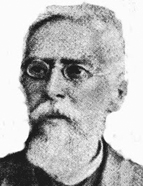

Another character from Memórias..., although much less well known than Xica da Silva, was Isidoro, the slave of a religious man who made his living from mining. Accused of smuggling, the owner had the slave seized and forced to work for the royal estate in mineral extraction. Isidoro, however, escaped from prison to lead a group of escaped slave miners who had the sympathy of the community. After years of illegal activity, Isidoro was arrested and killed in 1809 after suffering three days of torture for refusing to hand over accomplices. Thus was born the "martyr Isidoro" and the legend of a great treasure of diamonds yet to be discovered in Minas Gerais. Felício Santos' narrative was built on oral sources: "What we have just narrated was told to us by reliable, impartial, eyewitnesses" (J.F. Santos, Memórias do Districto Diamantino , 1868, p. 339).
In Memórias..., Joaquim Felício dos Santos' central thesis is that the Diamantino District was governed by
very rigid legislation, something that would have been exacerbated by the 1771 regiment of Sebastião José de Carvalho e Melo (Marquis of Pombal). The Crown, based on the intendencies, would govern the region in an absolute, despotic manner, which would paint the district as a kind of "colony within another colony", a term also repeated in the novel that mixes fiction and history, Acayaca 1729, inspired by an indigenous legend.
Raymundo Faoro (1925-2003) was one of the authors who used the thesis of this "venerable historian" : "The Diamond Regiment (...) is perhaps the harshest, cruellest, and most tyrannical instrument of the three centuries of metropolitan rule. No one enjoys any rights; the movement of people is prohibited, and all are subject to arbitrary expulsion and imprisonment. Authority can do anything, without respect for anything or anyone (...)" (R. Faoro, Os donos do poder [The masters of power] , 1975, p. 225).
This work is financed by national funds through FCT - Foundation for Science and Technology, I.P, in the scope of the projects UIDB/04311/2020 and UIDP/04311/2020.
